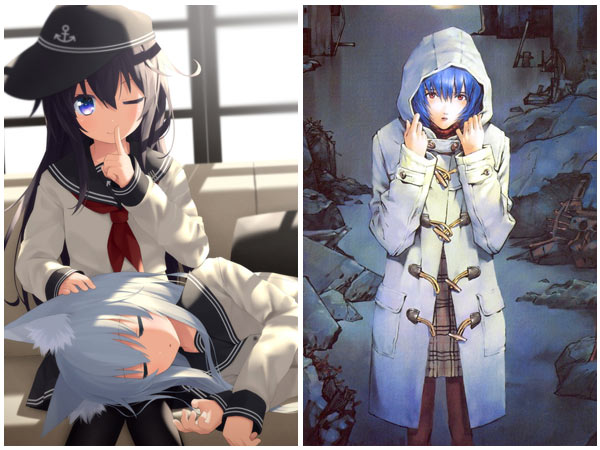
One of the fun things about science-fiction stories involving the future is comparing the predictions they make about events that are yet to come with the reality that eventually arrives. While this can be quite fun — 1997 was the year Skynet came online, and the year Manhattan has become a hellish prison in Escape from New York, which both seemed at least slightly plausible when the films came out — it can also be sad, if you’re a serious fan of the film 2001: A Spacy Odyssey (like me) and have been waiting all your life for Pan-Am spacecraft to fly you to Clavius Base on the Moon for a vacation. 2015 is the year of the “future” from Back to the Future II, and there have been dozens of news articles commenting on the lack of hoverboards and Mr. Fusion technology today. It’s a special year for anime fans, too: the year the events of the original Neon Genesis Evangelion events take place. It all started yesterday, in fact: June 21, 2015 was the day Shinji met Misato in Tokyo III, visited NERV and was told by his father to “get in the robot.” How are you going to celebrate “International Eva Day”?
Learning to communicate in Japanese obviously means acquiring vocabulary words and grammar in the target language, plus getting enough practice (through activities like speaking, reading manga in Japanese, etc.) to reenforce it all inside your brain. But things can get a little more complex than this, mainly because of what isn’t said. Japanese sentences are structured so that that different parts — subject, object, prepositions, etc. — are marked with handy grammatical particles like は (the subject marker, pronounced wa) or を (the object marker, conveniently pronounced ‘o’). While this can be handy for anyone learning the language, the reality is that any information that’s understood by all parties will nearly always be omitted from sentences. When my wife comes into my office asks me if I’m ready to go to lunch, the only word she actually says is 行く iku? (literally meaning “go?”), since everything else she wants to say is clear from the context. Silence is also one of the most potent social weapons in Japanese society. If you ever really offend someone in Japan you’ll know it because you’ll hear only total bone-crushing silence from them for the rest of eternity, coupled with the refusal to ever make eye contact with you. It’s pretty much the most terrible thing ever, the equivalent of being shunned socially, and I’ve hated the times I’ve accidentally triggered that response by making social blunders.
We’ve got some great news for fans of English-translated eroge from Japan: the upcoming Raidy III has gone Golden Master and will be shipping in a few weeks. The limited edition we’ve prepared for everyone is great, with a full color manual and a gorgeous set of dual-sided collectable cards that portray all the wonderful monster girls in the game. Preorder the game now!
















